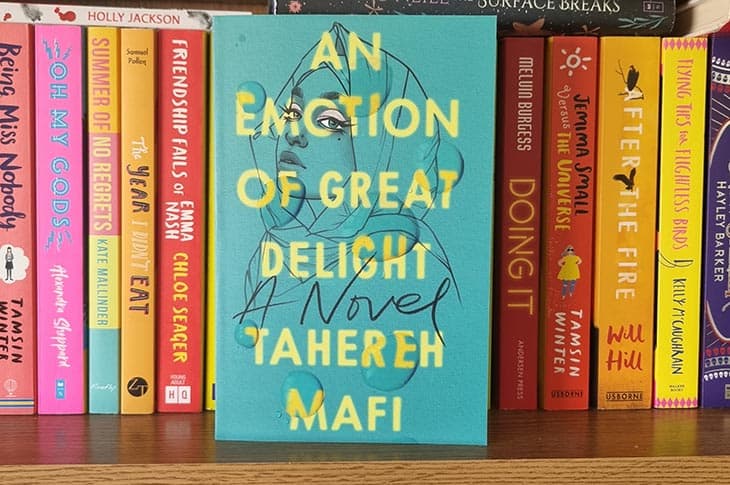Interview Questions for Tahereh Mafi about her latest novel An Emotion of Great Delight
Hi Tahereh, thank you so much for agreeing to speak to us (YALC – YA Literature Convention) today.
It’s my pleasure; thanks so much for having me.
Can you give our readers a little overview of your latest novel An Emotion of Great Delight?
The book is, at its core, a story of a pushing through sorrow and reclaiming joy. It takes place in 2003–a few months after the U.S. declared war on Iraq–and follows seventeen-year-old Shadi, an Iranian-American Muslim teenager trying to navigate the many complications and losses in her personal life against the backdrop of a modern war.
Can you tell us a little bit about your background? What made you want to write YA novels?
I’d never thought about writing fiction professionally until after I graduated from University. I’d spent so much time studying books and dissecting books and writing papers about books that I’d forgotten what it was like to simply read a book for pure enjoyment. Young Adult fiction was having a big resurgence at that time, and when I started reading these stories I remembered why I fell in love with reading all those years ago, as a child. I knew then that I wanted to be a part of the world responsible for introducing young people to literature.
What inspired you to write An Emotion of Great Delight and how much research did you have to do on the topic?
I wanted, with this story, to depict the many variations on pain that might be experienced by a marginalized youth, who is just as susceptible to standard trauma as any other teenager. Being exposed to bigotry and xenophobia do not exclude a person from dealing simultaneously with all the basic human tragedies of life, and I wanted to try and capture this multi-dimensional experience that was so familiar to me, and to so many other young people I know. It didn’t require more than general research on the time period, as so much of it was already familiar to me.
Given the subject matter, how much of an emotional experience was it writing this novel?
It was definitely difficult writing this book. I had to live in the headspace of the main character for as long as it took me to write it, which meant the process took an emotional toll on me, for sure.
A lot of writers take inspiration from their own experiences. Are any of the characters based on real-life people or people in your own life?
Yes, I absolutely drew inspiration from real life; from my own experiences, and from the experiences of those I know. It’s not exact, of course; we take the raw elements of reality and transform them into fiction, but the essence is based in truth.
Without giving too much away, what do you want your readers to take away from An Emotion of Great Delight?
We too often commit cruelties against teenagers by refusing to acknowledge the validity of the pain they experience; I want young people to know, first and foremost, that their pain is recognized. I also want them to know it matters.
What advice would you give someone wanting to write their own YA novel?
Just finish it. It’s okay if it’s bad; that’s what revision is for. You can always edit a bad manuscript, but you can’t edit a blank page.
Finally, can you give us your favourite quote from a novel (it can be yours!)?
One of my favorite lines from my husband’s books is, “Sometimes you just need to go through a door.” This is from Miss Peregrine’s Home for Peculiar Children, by Ransom Riggs.
Thanks again.

Tahereh Mafi

